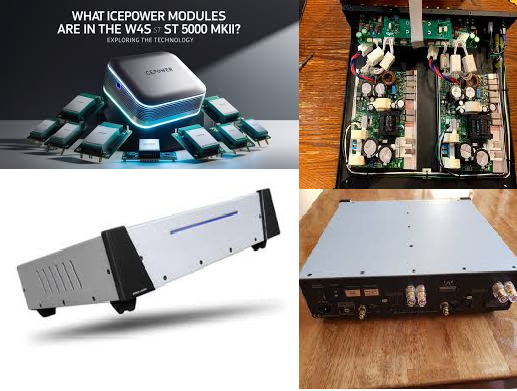The field of software engineering is one of the most in-demand and rapidly evolving sectors today. Many aspiring engineers wonder whether they can transition from a degree in Electrical Engineering (EE) into software engineering, and the answer is a resounding yes. While Electrical Engineering traditionally focuses on hardware and circuits, it overlaps significantly with software, especially in areas like embedded systems, control systems, and communications. Here’s an in-depth look at how a degree in Electrical Engineering can pave the way for a successful career in software engineering.
1. Overlapping Skill Sets
Electrical Engineering is closely linked to software engineering in several ways, particularly in areas such as:
- Programming and Coding: EE students typically learn programming languages like C, C++, Python, and MATLAB. These are often the foundation for software engineering roles. In fact, many EE courses involve solving problems through programming, which is a core part of software engineering.
- Embedded Systems and Firmware Development: EE graduates are well-equipped to work with embedded systems—a blend of hardware and software. Developing software for hardware platforms like microcontrollers and FPGAs (Field Programmable Gate Arrays) is a critical skill that’s in demand in industries such as automotive, robotics, and consumer electronics.
- Control Systems and Signal Processing: These subjects, which are central to many EE programs, often require students to design and simulate systems through software. The algorithms and software logic developed in these fields are highly transferable to software engineering roles.
2. Theoretical Foundations and Problem-Solving
Electrical engineers are trained in complex problem-solving and applying mathematical models to real-world problems, which is a highly valued skill in software engineering. Whether it’s analyzing a circuit or writing an algorithm, both fields require structured thinking and the ability to break down problems.
Additionally, EE students delve into courses such as digital logic design, data structures, and algorithms—all critical to software engineering. Understanding logic gates, circuits, and how computers process data gives EE graduates an edge when it comes to low-level programming and performance optimization in software development.
3. Specific Fields Where EE and Software Engineering Meet
Several key areas of software engineering require the skills that electrical engineers typically possess:
- Internet of Things (IoT): As IoT devices proliferate, the need for engineers who understand both the hardware and software aspects of connected systems grows. Electrical engineers often find themselves at the heart of IoT development, bridging hardware with software to create seamless communication and control systems.
- Artificial Intelligence (AI) and Machine Learning (ML): Many EE graduates are drawn to machine learning and artificial intelligence, particularly in relation to signal processing or control systems. EE knowledge is particularly useful for optimizing algorithms, which are at the core of ML applications.
- Automation and Robotics: The development of control systems for robots, autonomous vehicles, and drones requires both hardware knowledge and software programming. This is an area where EE and software engineering align closely.
- Telecommunications and Networking: The software side of telecommunications—whether it’s protocol development or network security—relies heavily on the understanding of communication systems, something that is covered extensively in EE programs.
4. Bridging the Gap: How to Make the Transition
If you’re an EE graduate aiming to enter the software engineering field, you may want to supplement your skills in the following areas:
- Learn More Programming Languages: While you might already know C or Python, becoming proficient in more software-centric languages such as Java, JavaScript, Go, or Rust will expand your opportunities in areas like web development or backend software engineering.
- Focus on Software Development Practices: Software engineers need to understand version control (e.g., Git), agile methodologies, and test-driven development (TDD). These concepts are often less emphasized in EE programs but are critical in a professional software development environment.
- Contribute to Open Source Projects: This is a great way to gain hands-on experience, improve your coding skills, and build a portfolio of real-world software projects that you can showcase to potential employers.
- Take Software Engineering Courses: Many EE students take electives in computer science, but taking dedicated software engineering courses, either through formal education or platforms like Coursera, Udemy, or edX, will help deepen your software knowledge.
5. Job Opportunities for EE Graduates in Software Engineering
EE graduates are often hired for software engineering roles, especially in industries that require strong knowledge of hardware. Some common roles include:
- Embedded Software Engineer
- Firmware Engineer
- Control Systems Software Developer
- IoT Software Developer
- AI/ML Engineer
- Systems Software Engineer
These roles capitalize on an EE graduate’s understanding of both hardware and software systems, making them ideal candidates for specialized areas within the software engineering industry.
6. Industry Demand and Career Outlook
There is a growing demand for engineers who can work across disciplines. Cross-functional roles that require both hardware and software expertise are especially in demand in industries such as automotive, telecommunications, consumer electronics, and industrial automation. Furthermore, companies developing smart devices, robotics, and autonomous systems are actively seeking professionals with a solid EE background and software skills.
According to the U.S. Bureau of Labor Statistics, software development is projected to grow 25% by 2031, which is much faster than the average for all occupations. The demand for embedded software engineers and IoT specialists is expected to surge, providing ample opportunities for EE graduates to enter the software field.
Conclusion
In summary, an Electrical Engineering degree provides a strong foundation for a career in software engineering. With some additional learning, particularly in software development practices and programming languages, EE graduates can excel in software engineering roles, particularly in industries that value a combination of hardware and software expertise. Whether you’re working on embedded systems, IoT, machine learning, or control systems, the skills you gained in EE will serve as a valuable asset in your software engineering career path.
Read more :
1= https://rapidurlindexer.net/blogs/how-to-reset-the-amd-radeon-software-logo/
2= https://rapidurlindexer.net/blogs/how-to-enter-a-stock-split-in-metastock-software/
5= https://rapidurlindexer.net/blogs/can-i-call-myself-a-full-stack-software-engineer-intern/



